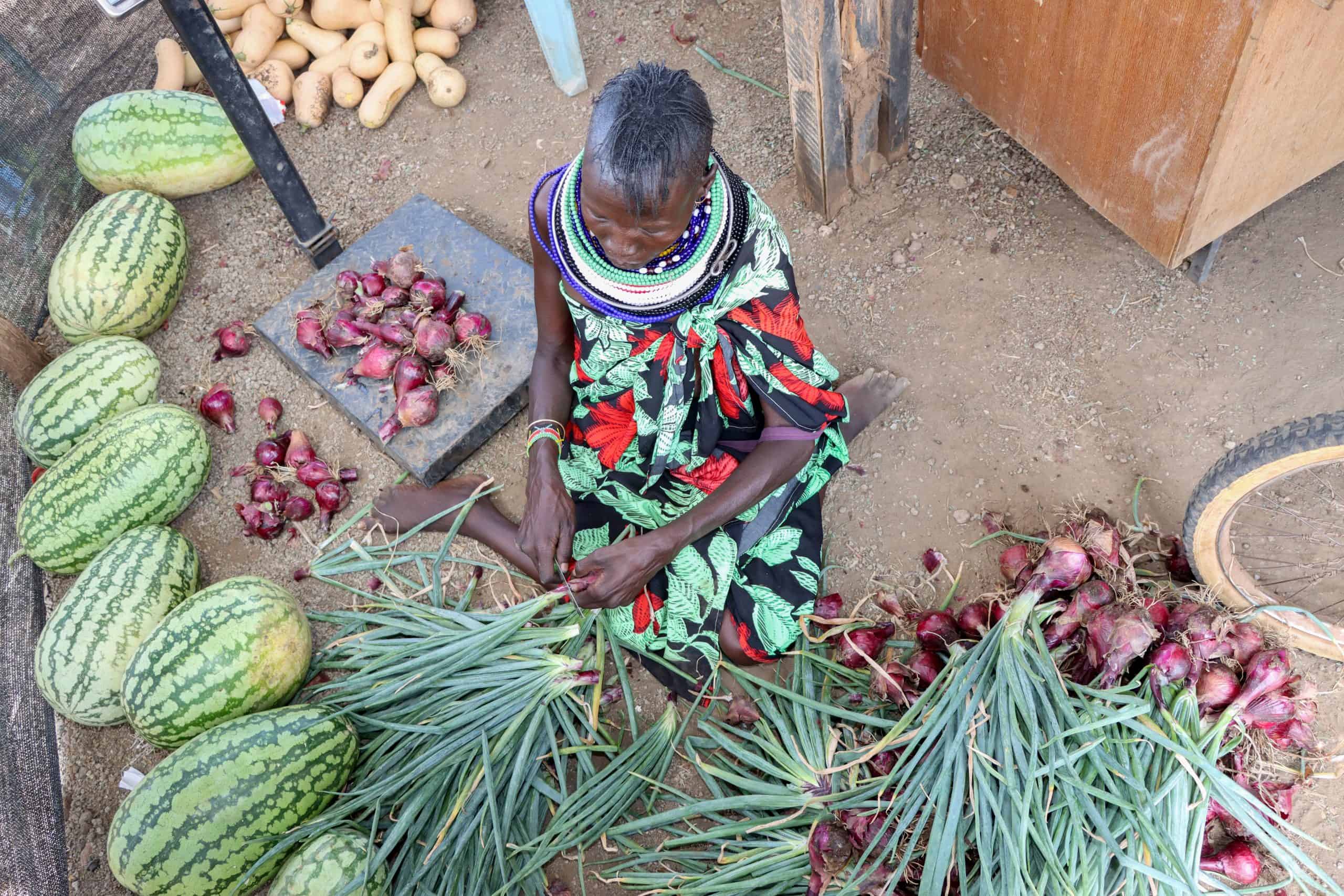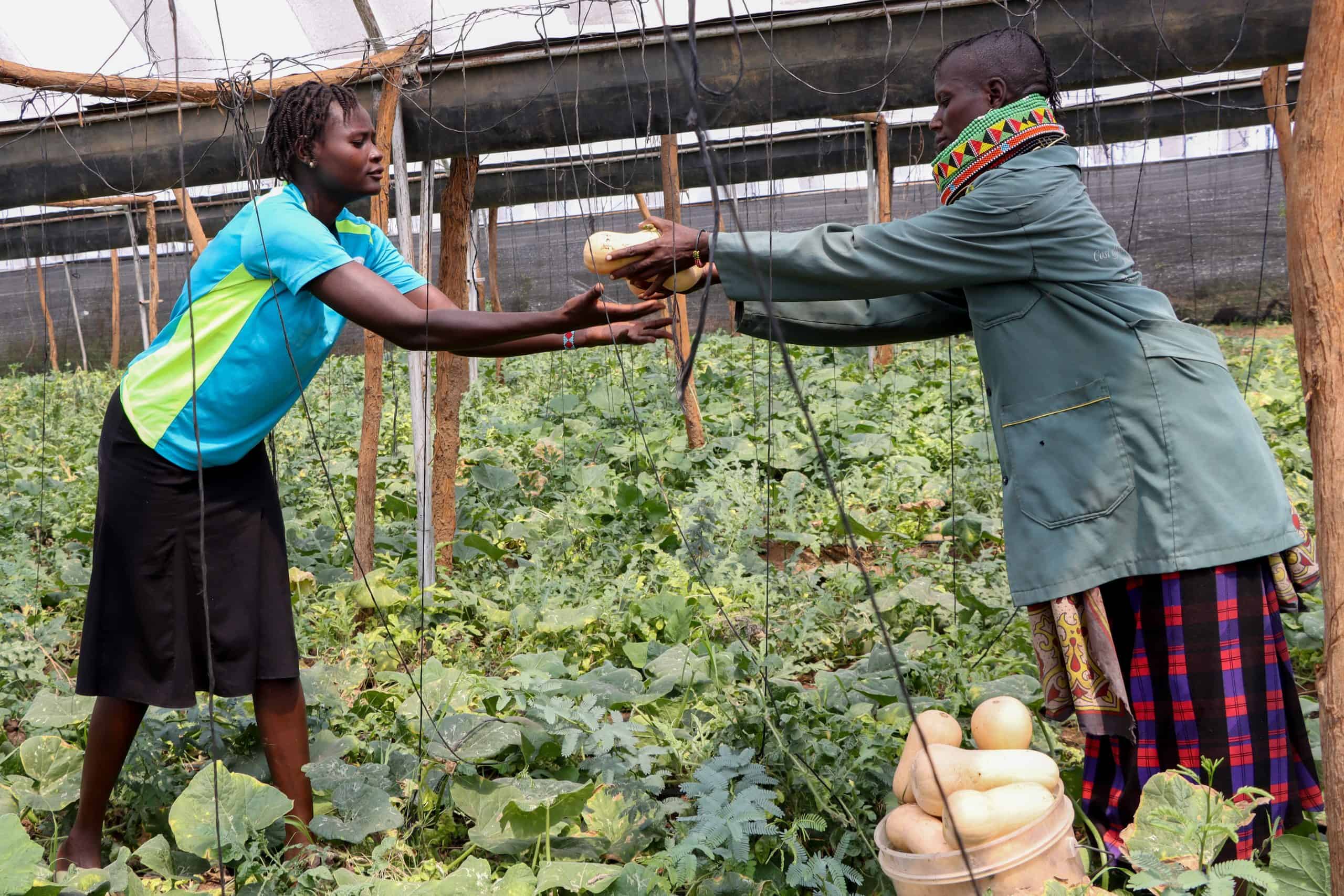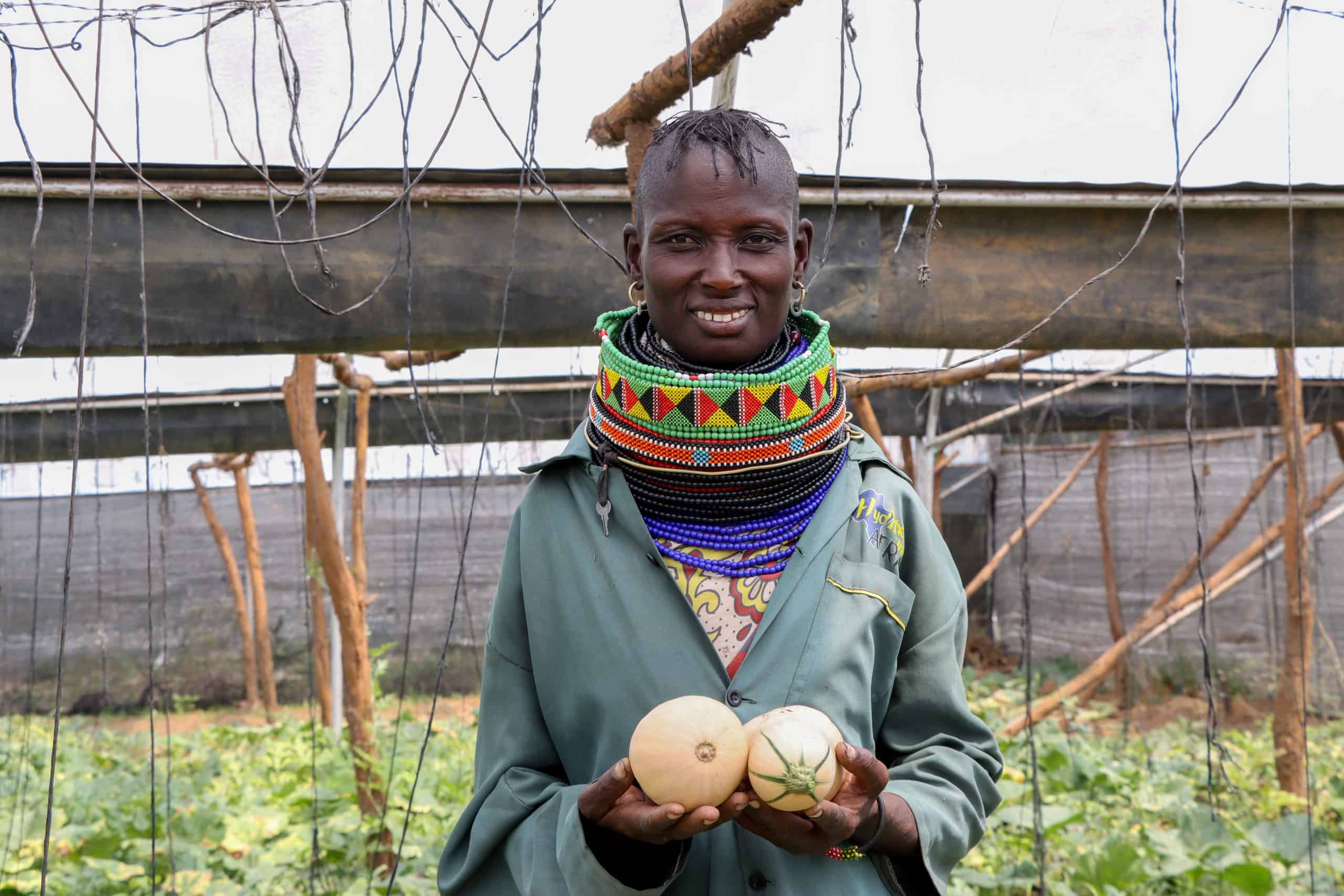How Hydroponics Africa is empowering refugees and transforming Turkana through agribusiness
Turkana, Kenya, painted a stark picture of drought and despair for generations. Its vast, arid landscapes, dotted with thorny shrubs and traditional manyattas, seemed destined for hardship. However, a remarkable transformation is underway, driven by innovative agribusiness and a commitment to empowering refugees and host communities.
Hydroponics Africa Limited is rewriting Turkana’s story, proving that investment can unlock incredible potential even in the most challenging environments. By deploying climate-smart hydroponics technology, they have turned 43 acres of land in Letea, Turkana West, into vibrant fields of tomatoes, onions, watermelons, and butternut squash.
Hydroponics Africa is a simplified, cost-effective farming solution that delivers value through less water usage, reduced labor and land requirements, and increased crop yield. Hydroponics Africa CEO and Founder Dr. Peter Chege says the technology is the most appropriate farming technique for the semi-arid area since it uses 80 percent less water and crops can be grown horizontally and vertically without requiring soil. “Kakuma is a dry area with irregular rainfall; hence, hydroponics can be used to grow food throughout the year to meet the high demand in the area,” says Dr. Chege.
Before the organization set up its operations in the location, vegetables were a rare delicacy in the locals’ diet. The locals traveled 40 Km to Kakuma town to buy leafy greens, cowpeas, onions, and tomatoes, incurring high transport costs.
Today, local communities in Kakuma can buy vegetables from Hydroponics Africa and grow their own after learning the farming technique at its demonstration farm. The food produced at the farm is also sold to markets beyond Kakuma and even in neighboring Uganda.

Dr. Chege was inspired to establish operations in Kakuma explains, “We were amazed at the high demand for vegetables in the area, yet there was enough land and good soil with high agricultural potential. We knew employing hydroponics in the context of the area’s climatic conditions would help us produce food at a low cost and create a huge impact in the community.” Hydroponics Africa acquired five-acre land from the community, and with grant financing and technical assistance from the Kakuma Kalobeyei Challenge Fund (KKCF), they established the farm by sinking water boreholes, building greenhouses, and setting up hydroponic systems. Selling the concept of hydroponic farming to the locals was not easy. The Turkana are pastoralists, and, in this region, they mainly depend on donor agencies for relief supplies.
Through a survey, KKCF helped the organization to define the market and specialize in high-value crops. “The grant and additional technical support helped us advance our concept to the community who, after seeing the impact, allowed us to expand from the initial five acres to 43,” says Dr. Chege.
The impact of investment extends beyond agriculture. A borehole initially intended for irrigation now provides clean water to 500 households, drastically reducing waterborne diseases. This fundamental resource has transformed lives, created stability, and improved health outcomes. The company’s commitment to gender equality, including confidential mechanisms to address gender-based violence, further strengthens its positive impact on the community.
Additionally, Hydroponics Africa’s contract farming model is empowering local farmers. Training in climate-smart agriculture, crop management, and entrepreneurial skills equips individuals with the tools to thrive. This model, reaching 600 farmers, provides access to inputs, market linkages, and a fair revenue-sharing system, fostering economic independence. Notably, 60% of those employed and trained are women, proving to be enterprising and vital contributors to the region’s economic growth.
Hellen Echor, a mother of seven from Atir village, exemplifies the transformative power of Hydroponics Africa in Turkana. Her story is one of resilience and empowerment. Despite her physical challenges, she plays a role in produce aggregation, ensuring the quality of harvested vegetables. Each day, her youngest daughter wheels her to the farm, where she works diligently until evening. Beyond her employment, she now grows millet, watermelon, onion, and tomatoes with the help of her children, supplementing her family’s diet and generating income. “The training gave me skills to grow food for my family,” she explains, “and the wage helps me pay school fees and provide for our needs.” Her gentle touch on her chanda, a traditional Turkana necklace, speaks of a woman who has found strength and opportunity amidst adversity.
Fidelis Mwenda Kioko, the lead agronomist at Hydroponics Africa, explains, “This is an area where farming has never been practiced, so we start by training them in traditional farming, its advantages and disadvantages, and then shift to climate-smart agriculture. We also teach them about crop management, pest and disease control, handling post-harvest losses, and how to practice farming as a business,” adding that apart from the 15 people employed directly at the farm, they can reach 600 farmers with the model. After production, they provide a market for the produce and share the revenue on a 40:60 basis for Hydroponics Africa and farmers, respectively.
Besides vegetables, Hydroponics Africa has diversified into drought-resistant Napier grass for livestock feed, another innovative step promoting sustainable grazing practices and mitigating desertification. The fast-growing, highly nutritious grass can yield up to 200 tons in an acre, and if fed to goats, they mature within a few months. According to Dr. Chege, this will enable the community to practice zero grazing and address climate change, as grazing goats on the grassland are responsible for the desertification in the area.

KKCF funded Hydroponics Africa under the private sector window, which targets private companies and social enterprises looking to expand their businesses in the Kakuma-Kalobeyei area. KKCF was designed to go beyond financial investment and include technical assistance so that the enterprises impact the refugee and host communities. “You cannot continue sustaining refugees with humanitarian aid. The right way is to bring on board the right private sector actors so that they can create opportunities for sustainable economic development in the region,” says Fredrick Kiio, Head of Agribusiness at AECF.
Hydroponics Africa’s future can only improve as it strives to transform Turkana into an agricultural hub. They plan to expand production, acquiring an additional 84 acres from the community and focusing on contract farming.
